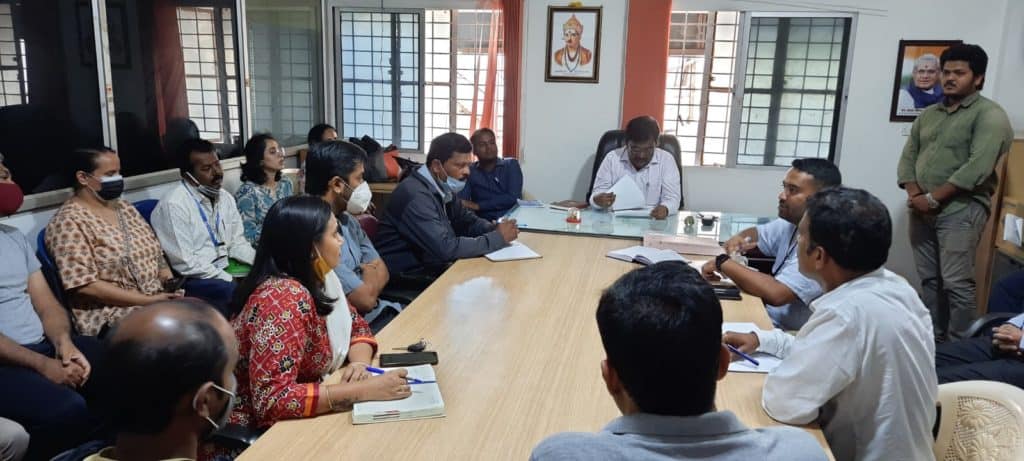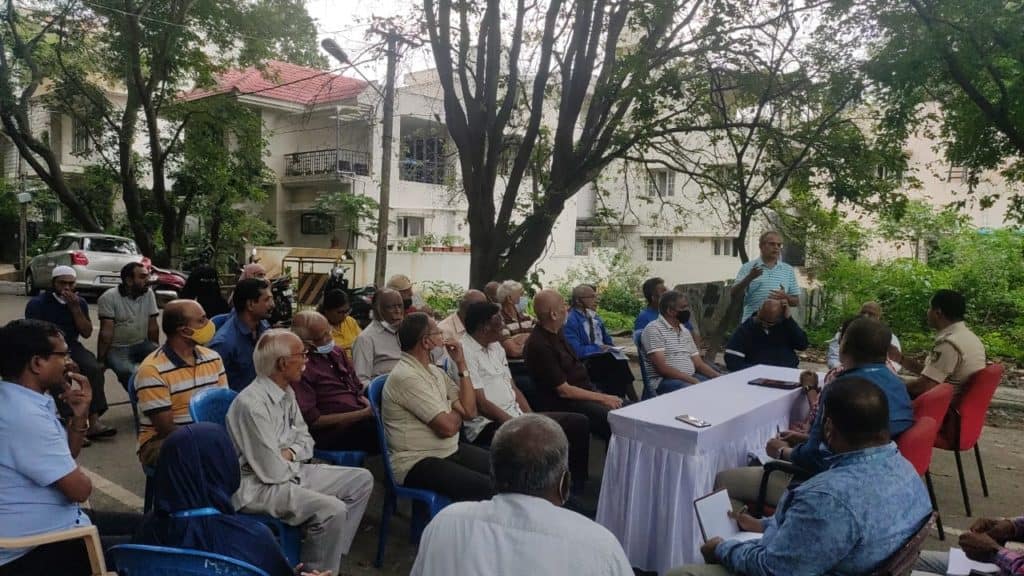I often get asked why I’m obsessed with ward committees and keep on promoting them despite so many challenges and setbacks. I am indeed obsessed and here’s why.
We are still evolving democracy. We can’t just vote for the best candidate and expect him/her to represent us and make things work. Getting elected doesn’t seem to have much to do with the ability to govern.
Of all the issues we face in our cities, many of them relate to local governance and not so much about international affairs or policymaking that require deeper engagement and very few have the means to influence decision-makers.
Civic issues are defined as things to do with the quality of daily life in our cities – roads, garbage, water, traffic, sanitation and sewerage. All of these are under the purview of the local government – the municipal corporation.
Municipal Corporations are organised into zones and wards and each of us belongs to one ward. Wards comprise anywhere between ten thousand to a lakh voters depending on the city. Ward is the unit of city governance, close enough to people that we can “see” the ward office and “meet” the ward engineer, health inspector and the elected representative of the ward — the corporator.

Read more: Ward committee meetings lack proper rules, representation and legal framework
Getting involved in Ward Committees
Only a few people take time off for public interest but they exist in every locality. While corporators, engineers and other officials may come and go, the residents are there always, dealing with the good and the bad. They know the history and they can imagine a better future too. They are well aware that constructive collaboration is the way to get things done.
This is where ward committees make the most sense to me. Ward committees are legally sanctioned forums for ward-level governance – month after month active citizens sit down with ward officials from all departments, along with those from other agencies like the local police. When you look at any problem from a city perspective, it looks too big and impossible to fix but if we reduce the problem size to the geography of a ward, it will begin to look more doable.
But who is interested in defining problems at a ward level? Not the Ministers. Not media. It is too small a unit for them to care but for residents of the ward, it makes a world of difference. That’s why Ward Committees matter.
The other reason I love ward committees is the inherent diversity and inclusion it brings. In Karnataka, the law says that each committee must have ten members of which three must be women, two from SC/ST reserved communities and two that represent local Residents’ Welfare Associations. While this can be made even better, it ensures voices of women and the disadvantaged are given space and prevents elite capture.
From the perspective of officials, ward committees give them a sense of purpose and direction as they are constantly pulled in different directions by various bosses. Here, the ultimate boss, the citizens are the ones asking questions and seeking help. It makes prioritisation easier and they can see how their work brings smiles to people.
Ward committees build trust between civic officials and citizens over time. This already exists to some extent informally but ward committees make it sustainable – it provides a reliable mechanism for citizen participation and collaboration with local government.
Now you know why I’m obsessed!

Read more : Webinar: How ward committees are utilising funds for potholes, footpaths, borewells
To make Bengaluru’s ward committees stronger, we need to make more citizens aware of their power and inspire them to join their ward meetings. We need a collective voice of citizens that demands better conduct of ward committees in every ward of our city.
Bruhat Bengaluru Ward Samiti Samavesha
A gathering of Bengalureans who care about ward committees is being planned to deliberate on the state of ward committees and to identify how citizens can work together across the city. In the spirit of participation, the organising committee comprises representatives from several civic groups and individuals.
Please join the Bruhat Bengaluru Ward Samiti Samavesha on Saturday 28th May at Mount Carmel College, Vasanth Nagar (10 am).
Meet fellow citizens that are striving to make Ward committees better. We intend to make it a forum to listen and learn from each other’s experiences and build a network of enlightened citizens that see ward committees as a way to make our city better.
To register for this event http://bit.ly/may28mtg
The event is supported by the Department of Public Policy at Mount Carmel College.
I am SHIVKUMAR from Ward-112 Domlur.
BBMP is not a product manufacturing company, they run on citizens tax money.also all politicians & police are payed from our tax money. I fail to understand why all these above mentioned don’t do citizens work but work only for politicians and do what they say… Then why should we pay tax.
All kind of irregularities emerge in the residential areas, like dance bar, schools, pubs etc. when citizens complaint to authorities be it police, excise department, BBMP or politicians ( elected representatives) they instead of solving mislead the citizens by telling them this complaint doesn’t pertain to us…
How can BBMP allocate public property to elected representative as office when the same is assigned for public utility..
Potholes and drain issues is a major concern in our ward… But BBMP and elected representative is busy chasing in things which is of no use to citizens.. the potholes are filled with some loose dust making the place more dangerous and prone to accidents and fall.. sheer waste of our money and waste of manpower..
Security and safety in the ward is absolutely zero.. police stations and offficers instead of protecting people are allowing all damn thing to run for the love of money…
Even if routine things which ought to have been done by BBMP is got followed up, to some extent, if the persons are slightly sensitive. Nothing special. Opportunities are grabed to get some publicity name and little fame from that.